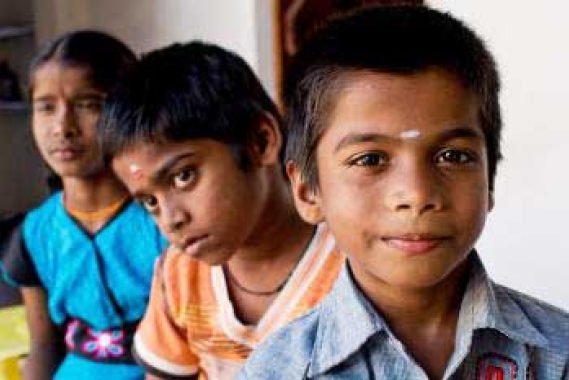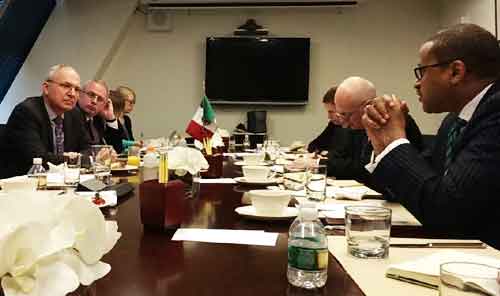Children and the Post-2015 Development Agenda

In an exclusive round-table meeting at the UN on post-2015 development, SOS Children´s Villages CEO Richard Pichler argued that issues related to children should receive direct and powerful attention – and ambitions should be high.
On 8 April 2014, a select group of ambassadors and CEOs from the leading child-focused NGOs were invited to a meeting at the United Nations to discuss the post-2015 agenda. SOS Children´s Villages CEO Richard Pichler was among the participants calling for children to be placed at the centre.
As 2015 marks the final year of the Millennium Development Goals (MDGs), and also the year that post-2015 development frameworks will be decided, priority setting is already well-underway. SOS Children´s Villages is leveraging its vast experience in caring for the most vulnerable children to influence the orientation of development policy and to advocate for the rights and welfare of the child at risk.
Mr Pichler stressed the importance of eradicating child poverty. He reasoned that discrimination against children cannot be addressed by targets and interventions alone; a comprehensive plan and multi-pronged approach are necessary to get at the root causes of child suffering.
He listed some of the biggest issues concerning children´s well-being, including hunger; child and maternal mortality; lack of universal access to health services and education; and violence against children.
 Without these issues addressed, vulnerable children around the world are exposed to a cycle of poverty, discrimination, violence and social exclusion, with consequences that endure into adulthood.
Without these issues addressed, vulnerable children around the world are exposed to a cycle of poverty, discrimination, violence and social exclusion, with consequences that endure into adulthood.
The SOS Children´s Villages CEO said he believes it is possible to resolve these issues and, by extension, the problematic cycle in the next 30-40 years – if the right actions are taken today and prioritised in the post-2015 goals and targets.
SOS Children’s Villages advocates for a development framework that addresses the needs of families at risk of separation and supports policies that prioritise the needs of children and young people who have lost parental care. This will yield multiple benefits, in the short and long term, that impact both individuals and society at large.
While the magnitude of resources needed to ensure adequate protection and quality care for all children at risk is not fully understood, it is estimated that trillions of dollars are needed to ensure that the framework actually delivers for children.
However, Mr Pichler stressed that while addressing child rights adequately in the post-2015 development framework may be costly, not addressing them will be even more costly, as the damage caused will be irreversible and draining on public services.
Based on over 60 years of experience and operations in 133 countries, SOS Children’s Villages strongly believes these recommendations will make the post-2015 agenda a solid foundation for sustainable development.
